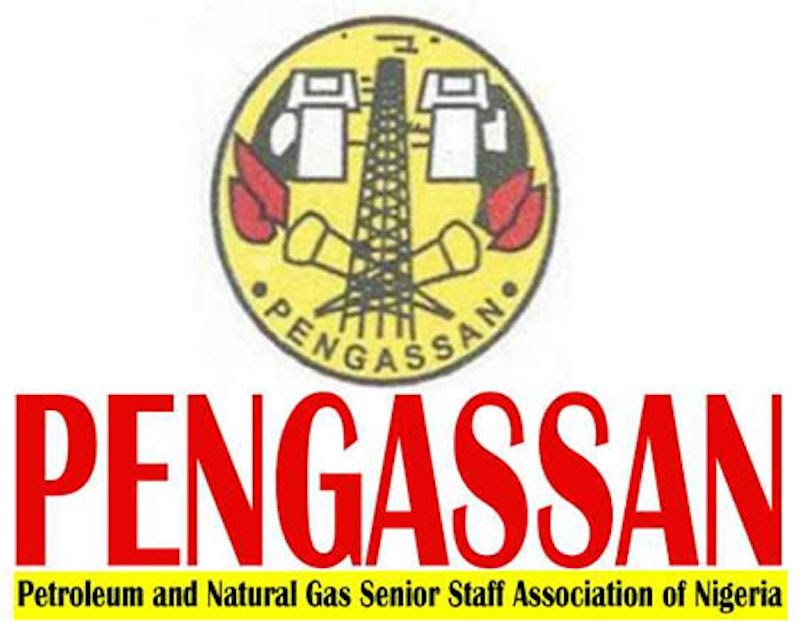Over the weekend, Festus Osifo, the National President of the Petroleum and Natural Gas Senior Staff Association of Nigeria (PENGASSAN), made a significant announcement.
Osifo revealed that despite the federal government’s official policy of discontinuing the subsidy on petrol since May, it had been reinstated.

Mr. Osifo, who also serves as the president of the Trade Union Congress (TUC), shared this update during a live television program.
“The government has to come clean. In reality today, there is a subsidy because as of when the earlier price was determined, the price of crude in the international market was somewhere around less than $80 a barrel. But today, it has moved to about $93/94 per barrel for Brent crude. So, because it has moved, then the price (of petrol) also needed to move,” Osifo said.
President Bola Tinubu had announced the removal of fuel subsidy in his inaugural speech on 29 May.
But Osifo said due to the cost of crude oil in the international market and the exchange rate, the government still pays subsidies on petrol.
“The speculation has been there looking at the fundamentals because two basic things that contribute to the pricing today are the exchange rate and the price of the crude in the international market.
“You know, in the last few weeks, the price of crude has been going up, and inches towards $95 per barrel. Based on this, there are speculations that there may be an increase in the price of Premium Motor Spirit (PMS) but behind the scenes, we have been engaging the government and trying to make them understand that there is no basis for that.
“Because for us, you know when they floated the exchange rate, you would recall that the exchange rate was moving at a very fast speed before some interventions came,” Osifo said.
He also said: “Today the official exchange rate is around N770 per dollar. So, what we have told them is that all international agencies, if you look at JP Morgan, Bank of America, and all, have said that our naira today is undervalued. What that means is that our naira should be exchanged somewhere around N600 to N630 for a dollar.
“And if the government can push it down to that range, then we would be buying PMS (petrol) at a little reduced rate compared to where it is today.
“So, we have told the government that there is no basis for us to be buying petrol at a price higher than what we have today. But instead, it should go down. But the controlling factor is the exchange rate so if they could work on the exchange rate. Today it is somewhere around N770 to a dollar. But if the true value comes to bear around N600 to a dollar then we would even buy PMS at a cheaper rate,” he added.
Responding to the question of whether the government is still subsidising petrol since the removal of the fuel subsidy, Osifo said, “We have to be honest to Nigerians. As of today, I can tell you that if you look at the crude oil price, there is what they call Platts; so, if you google it, you will see the Platts index, and if you check the Platts index, that will give you the ex-depot price from Rotterdam.
“So, if you look at it and you convert it using our current exchange rate you know that the landing cost in Nigeria today ought to be more than what we are dispensing at the pump,” he said.
He said what that means is the additional cost is being catered for by the government.
“But our cry is this, we should manage our FX more effectively compared to the way we are managing it today. If the true value of our exchange FX is around N600 to a dollar, if that is the true value, the government should find a way to manage it. There is no need to pay subsidies.
“The reason we are paying subsidy today is because our exchange rate has run away and if we continuously allow it to run, it will be a nightmare for everyone.”
He added: “They (the government) are paying subsidies today. You could see what happened in the last few months when the subsidy was removed. You could see the challenges that an average Nigerian has passed through. So, it has been very difficult but the government had the tools with which they could use in managing the exchange rate more effectively so that the subsidy will disappear but they are not using it.”
For the government to stop subsidising petroleum products, Osifo explained, two things must happen.
“The only reason the price will not move is when you can manage your exchange rate effectively and you can pump in supply and bring down the exchange rate.
“So, if the exchange rate comes down today, we will not be paying a subsidy. But with the exchange rate value and the price of crude oil in the international market, we have introduced a subsidy,” he said.







